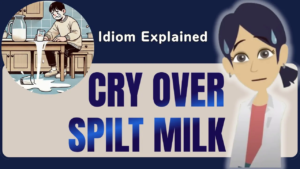Have you ever heard someone say, “The world is your oyster,” and wondered why they were talking about seafood when discussing your future? This captivating English idiom has puzzled countless language learners, leaving them uncertain about its meaning. Contrary to any literal interpretation involving oysters, this phrase has everything to do with embracing life’s opportunities. Below, you will find an extensive guide to understanding and using “the world is your oyster,” complete with practical examples, humorous anecdotes, and insights into related expressions. By the end, you will see how this idiom can become an encouraging mantra for seizing new horizons in your personal and professional life.
Understanding “The World Is Your Oyster”
What It Means and Why It Matters
“The world is your oyster” is a metaphor suggesting that life is brimming with potential, much like an oyster that might contain a precious pearl. When you adopt this perspective, you acknowledge that if you take initiative, you may discover opportunities and rewards you never expected. The phrase implies:
- Freedom to Explore: You have the liberty to seek out new possibilities.
- Endless Potential: Hidden “pearls” can appear in your professional or personal life if you keep an open mind.
- Empowerment: You’re encouraged to act boldly, trusting that determination often leads to meaningful outcomes.
The idiom resonates with learners because it offers an uplifting way to view the future. Instead of focusing on limitations, you shift your mindset to one of possibility and ambition. This approach can be particularly powerful for those learning English, since adopting a can-do spirit helps you tackle language challenges with greater optimism.
Common Misconceptions
Many newcomers to the English language take “the world is your oyster” literally, assuming it refers to seafood or fine dining. This misunderstanding sometimes leads to amusing scenarios where someone expects an actual oyster as a symbol of success. Of course, the phrase is purely figurative: no oyster shell, fork, or knife required.
Another misconception is believing that the idiom only pertains to big, life-changing moments. In reality, you can apply it to almost any situation—like taking on a new project at work or starting a hobby. Whether small or large, every venture can reveal a hidden pearl if you explore wholeheartedly.
Origins and Cultural Relevance
Shakespeare’s Influence
The phrase “the world is your oyster” first appeared in William Shakespeare’s play The Merry Wives of Windsor. In the original context, the character Pistol suggests he can extract advantages from the world by whatever means necessary—similar to prying open an oyster in search of a pearl. Over the centuries, this image evolved to emphasize not exploitation, but opportunity. Modern usage is far more positive, focusing on optimism and endless possibilities rather than cunning manipulation.
How It Became a Universal Mantra
- Popularized in Literature: Shakespeare’s works contributed numerous expressions to the English language, and “the world is your oyster” entered general usage due to his enduring influence.
- Spread Through Culture: Over time, writers, motivational speakers, and everyday conversations adapted the phrase. It now appears in films, articles, and casual speech, transcending regional boundaries.
- A Global Message: Although English speakers around the world recognize the idiom, its core concept—seizing opportunities—resonates with people in many different cultures. It aligns with the universal belief that hard work and courage can transform potential into achievement.
Practical Examples in Daily Life
Encouraging Words in the Workplace
Imagine you have just started a new position. Your boss might say, “Now that you’re part of our team, the world is your oyster. Feel free to contribute fresh ideas and take on challenging projects.” Translated from idiom-speak, this means you have considerable freedom to shape your role, explore initiatives, and ultimately find your own “pearls” in the company.
Another scenario: If a colleague is nervous about pitching an idea, you might reassure them, “With your creativity, the world is your oyster—don’t hold back!” You’re highlighting their potential, encouraging them to pursue bold strategies or new responsibilities.
Motivational Reminders in Personal Life
In your personal life, you might use this idiom to support a friend who is about to embark on a new journey. For instance, someone deciding to return to school might hear, “The world is your oyster—this is a great time to invest in yourself.” Rather than focusing on the obstacles, you encourage them to see education as an open gateway to possibilities.
If someone is hesitant to travel alone, telling them, “Go for it! The world is your oyster,” can be the nudge they need to pursue memorable experiences and expand their horizons.
Potentially Awkward Situations
People unfamiliar with the idiom might respond with confusion, thinking you are literally talking about seafood. One humorous story involves a foreign student who thought he needed to head straight to a seafood market to find pearls, only to realize later that it was simply an expression about discovering life’s treasures. Such misunderstandings lighten the mood and reinforce why it’s useful to learn idiomatic language.
Stories of Misunderstanding and Clarification
A Dinner Party Confusion
A classic anecdote describes a dinner party where a guest was enthusiastically told, “The world is your oyster!” Having little experience with idioms, the guest retorted, “But I don’t like oysters. Do I have to eat it?” The laughter around the table dissolved any embarrassment, and someone explained that the phrase suggests unlimited opportunities rather than a culinary obligation. This moment exemplifies how language learners can easily misinterpret figurative expressions.
Real-Life Transformation
A second story involves a determined individual who relocated to a foreign country to expand his career. Initially, he heard the idiom “The world is your oyster” from a mentor but had no idea what it meant. After some confusion, he realized it encouraged him to work hard and seek out hidden paths to success. With this empowering perspective, he landed a job that sparked a rewarding career. Over time, he embraced every new challenge, always recalling that the world offered pearls if only he dared to look for them.
Note: In its original Shakespearean context, Pistol’s intention was somewhat aggressive. However, the modern usage is purely motivational. If someone cites the phrase in a more manipulative sense, it’s worth clarifying that contemporary understanding focuses on optimism and proactive ambition.
Similar Expressions and Their Meanings
- “The Sky’s the Limit”
This idiom implies no boundaries exist for what you can achieve. It underlines that your capacity for success or personal growth is virtually infinite. Much like “the world is your oyster,” it encourages high aspirations and the confidence to pursue them. - “The World Is at Your Feet”
Similar in intent to “the world is your oyster,” this expression indicates you have excellent opportunities available, often due to your own talents or circumstances. It conjures the image of someone standing on top of the globe, ready to conquer it. - “Seize the Day” (Carpe Diem)
Originating from Latin, “carpe diem” means you should make the most of the present moment. It’s a reminder that opportunities don’t last forever—just as an oyster can be missed if you don’t crack it open in time. - “Make Hay While the Sun Shines”
Suggests taking advantage of good conditions before they pass. In the context of oyster-related imagery, you might interpret it as opening the oyster while conditions are optimal, rather than waiting until the opportunity slips away.
Opposite Perspective: “The World Is Against You”
On the flip side, you might hear someone say, “The world is against you.” This discouraging viewpoint implies that obstacles abound, and success is hard to attain. Turning this negative notion around is part of what “the world is your oyster” does so effectively: it reframes life’s challenges as gateways to growth. Even if conditions are difficult, the essence of the oyster idiom is that perseverance and optimism can transform setbacks into stepping stones.
Tips for Using “The World Is Your Oyster”
- Encourage Others:
When you see a friend or colleague hesitating about a new venture—whether it’s switching careers, trying a new hobby, or traveling somewhere unfamiliar—remind them that the world is their oyster. It’s a vote of confidence that can reassure them to take that next step. - Motivate Yourself:
Adopt the phrase in moments when you doubt your own ability to succeed. Repeating “the world is my oyster” can shift your mindset from fear to possibility, reminding you to explore different approaches and remain open to what you might find. - Stay Balanced:
While the idiom highlights opportunities, it doesn’t mean you should ignore potential risks. An oyster may contain a pearl, but it requires effort to open it carefully. Similarly, proceed with both optimism and wisdom in any pursuit.
An Inspirational Success Story
Consider a situation involving someone who moved abroad with limited resources and a dream to become an entrepreneur. Initially, the individual struggled with language barriers, cultural differences, and financial hurdles. Despite these challenges, they held onto the spirit of “the world is your oyster,” learning from mistakes, seeking guidance, and gradually establishing a thriving business.
Along the way, there were amusing cultural mishaps—like buying actual oysters to “manifest success,” only to discover that fresh oysters are an acquired taste. Over time, the person found that real “pearls” came in the form of networking opportunities, supportive mentors, and a willingness to try new things. Embracing the idiom as a guiding principle helped convert each obstacle into a lesson.
Today, that individual reflects on the journey as a testament to how the right mindset can open the doors to advancement. The humor and the triumphs both become part of the compelling narrative that underscores the power of believing in unlimited possibilities.
Rephrasing “The World Is Your Oyster” in Your Own Words
Sometimes you may want to convey the same uplifting message without using the exact phrase. Here are two alternatives:
- “You have untapped potential, and there’s no limit to where your ambitions can take you.”
This emphasizes that each person holds unique abilities, and with effort, they can transform their talents into achievements. - “Opportunities abound, and it’s up to you to discover them.”
Encourages active pursuit of new ventures. Much like opening an oyster, you have to do the work to reveal the pearl.
If you encounter someone who truly dislikes seafood, these rewordings help you avoid any reference to oysters altogether while preserving the idiom’s motivational intent.
Conclusion
“The world is your oyster” is far more than a decorative phrase. It’s a philosophy that invites you to remain alert to possibilities and engage wholeheartedly with new experiences. By visualizing an oyster guarding a pearl, you grasp the concept that worthwhile discoveries require a bit of patience and a willingness to open the shell. Whether you apply this idiom to career, friendships, travel, or personal growth, the principle remains the same: seize the chance to unlock hidden rewards.
Remember these key points:
- Meaning: The idiom underscores the boundless opportunities life has to offer.
- Usage: Perfect for motivational contexts, from workplace encouragement to personal milestones.
- Significance: Fosters a positive outlook, inspiring you to act decisively and explore further.
- Similar Expressions: “The sky’s the limit,” “the world is at your feet,” and “seize the day” offer parallel sentiments.
Armed with this understanding, you can integrate “the world is your oyster” into your English vocabulary with confidence and flair. Embrace the spirit of the idiom, and you may just uncover pearls of opportunity where you least expect them. After all, each day can bring a chance to crack open a new shell and discover something brilliant inside.









Comment